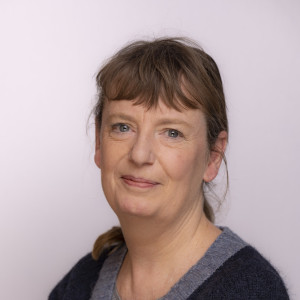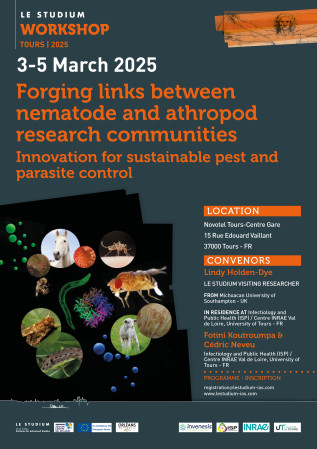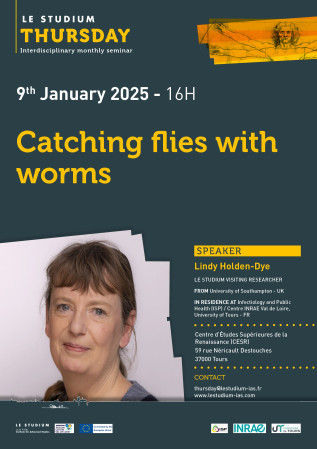Lindy Holden-Dye

From
University of Southampton - UK
In residence at
Infectiology and Public Health (ISP) / Centre INRAE Val de Loire, University of Tours - FR
Host scientist
Fotini Koutroumpa
BIOGRAPHY
Professor Lindy Holden-Dye (PhD, BSc, MSc, PhD, FRSB, FBPhS) holds a personal Chair in Neuroscience within Biological Sciences at the University of Southampton, UK. Her interests focus on fundamental processes of neuronal communication and she has established research expertise in invertebrate preparations to explore these processes. Through this interest she has published more than 200 research outputs and contributed to research relevant to a number of important areas of neuroscience that inform understanding of neural communication relevant to mental health. Her expertise in invertebrate neuroscience, and in particular nematode neural systems and the model genetic organism Caenorhabditis elegans positions her well to participate in drug discovery and mode of action programmes for novel antiparasitics. For the last two decades she has collaborated with industry to improve prospects for parasitic nematode control. Her research group identified the molecular target for the resistance breaking anthelmintic emodepside showing it acts through a calcium-activated K+ channel SLO-1 to bring about neuromuscular paralysis in nematode worms. This discovery has paved the way for the pursuit of new approaches to the treatment of human filarial disease. The experimental approaches deployed in her research group encompass genetics through to whole animal physiology and incorporate novel methods for tracking animal behaviour and signal processing. She is also passionate about sharing her enthusiasm for neurobiology with the next generation of scientists and has supervised more than 35 postgraduate research students to completion.
PROJECT
Novel control strategies for arthropod pests through characterisation of their essential ion channels in a Caenorhabditis elegans expression platform
New approaches for the control of invertebrate pests and parasites are urgently required. This is in part due to the emergence of resistance to the chemicals that are used as pesticides and anti-parasitic drugs. In addition, there is real concern that the toxicity of the currently available chemicals makes their use unsustainable. Rather, control strategies are required that disrupt pest and parasite behaviour in a way that spares beneficial organisms and the environment. This demands a better understanding of the distinct properties of neural signalling including ion channels that are essential to invertebrate survival. Currently this goal is largely served by highly specialised labs with access to an insectarium, in that respect, the research community would greatly benefit from higher throughput, more tractable approaches. Here we will develop a new transgenic platform for characterisation of arthropod receptor ion channels using the model genetic organism Caenorhabditis elegans. Importantly, this will include expression of insect pheromone receptors, which are non-selective cation channels and tractable in this paradigm. This entirely novel approach has potential to be hugely informative in understanding key features of pheromone communication which is highly species specific and presents an excellent option for ‘green’ pest control. It will be a timely deployment of expertise that the applicant has recently established for the characterisation of parasitic nematode ion channels to study those of arthropod pests, a major interest of the host lab. We will adapt a C. elegans expression system developed at Southampton to enable expression of i) an ion channel of the human louse Pediculus humanus humanus and ii) a pheromone receptor of a major moth pest Spodoptera littoralis. This is a unique alignment of expertise in C. elegans
(Southampton) and arthropod pests (INRAe Nouzilly) to address a pressing environmental concern. Successful delivery of this expression platform will provide new insight into the neurobiology of pest and ectoparasitic arthropods and underpin future control strategies.


